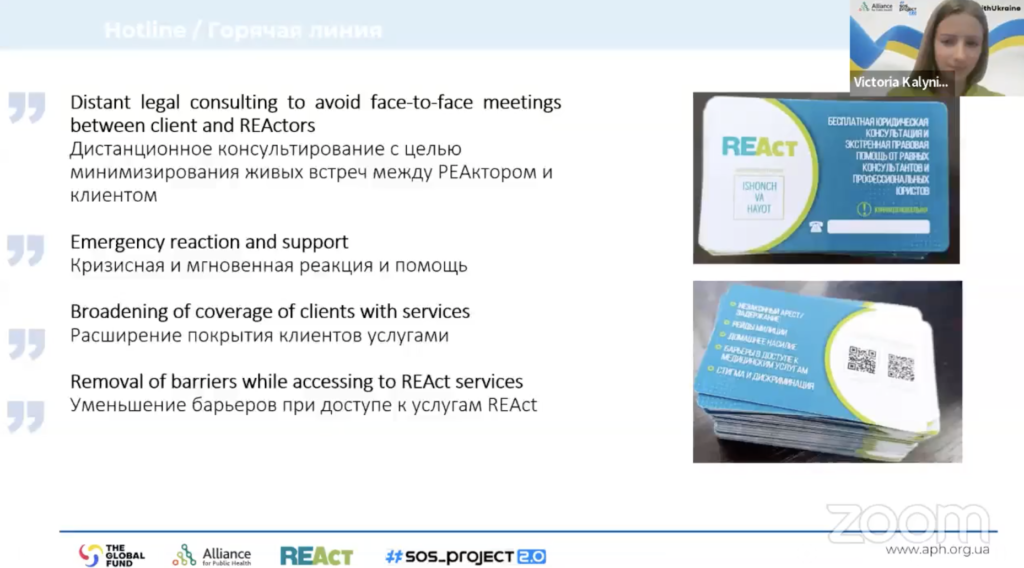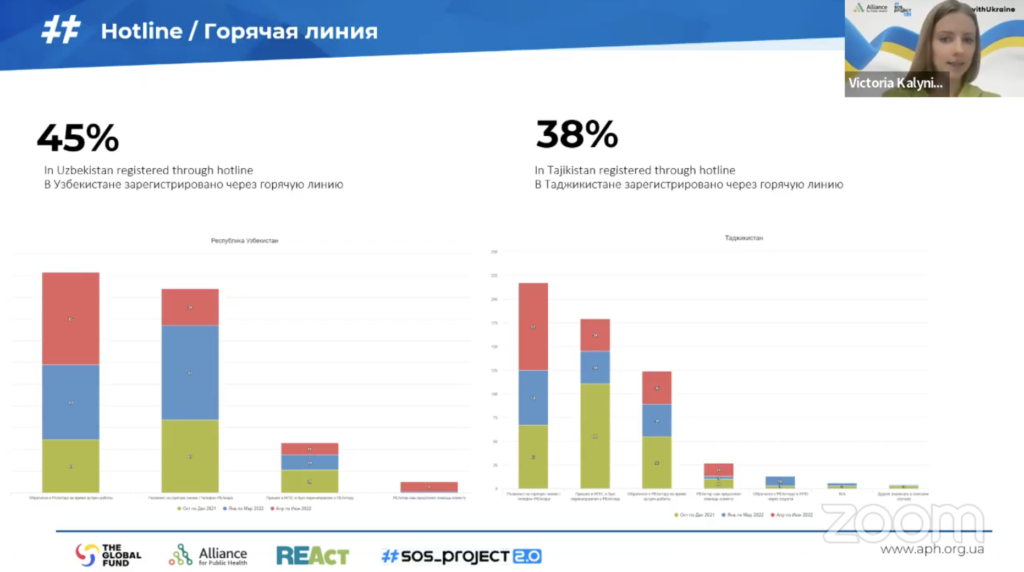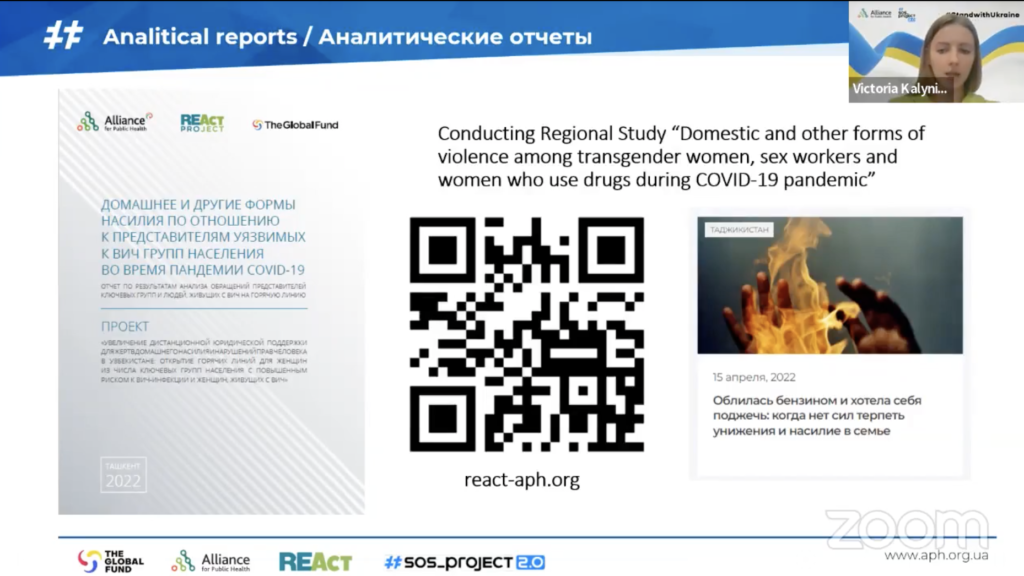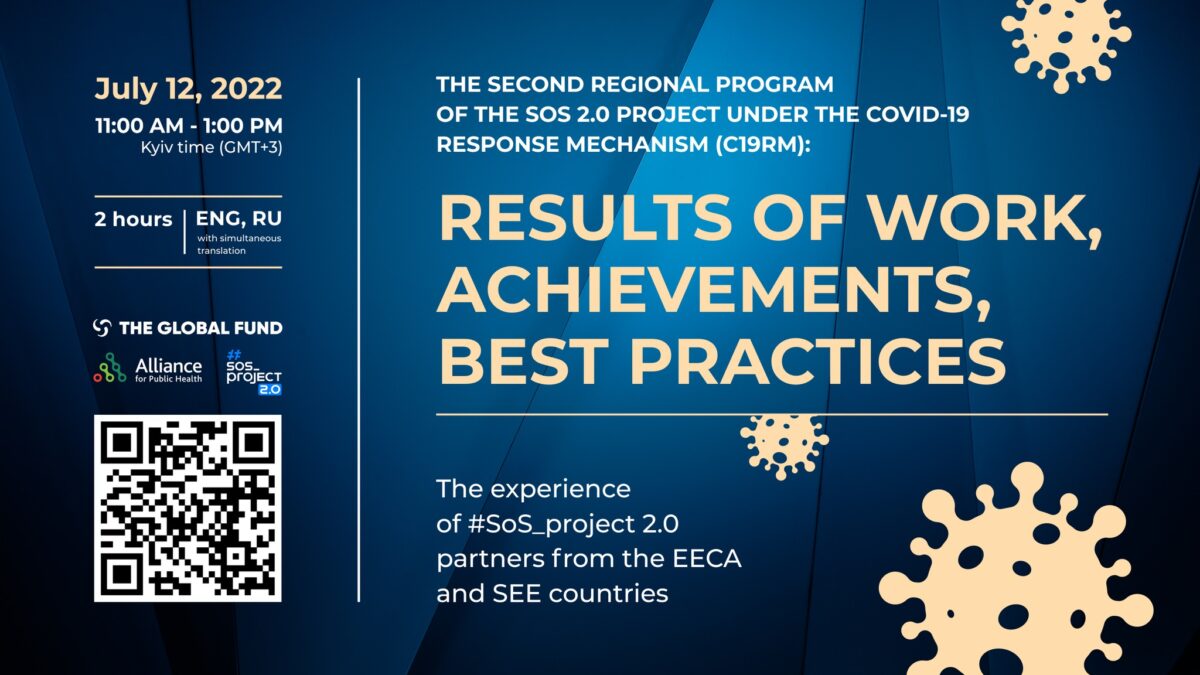In early July, as part of the implementation of the COVID-19 Response Mechanism (C19RM), the Alliance for Public Health team held a webinar on the topic “The second regional program on COVID-19 of the #SoS 2.0 project: results of work, achievements, best practices”. The purpose of this event was to share best practices and present the results of the work of partners of the regional C19RM program in Eastern Europe and Central Asia.
Among the key speeches, the presentation of new interventions in the work of the REAct tool, which have already been implemented in Tajikistan and Uzbekistan, was highlighted, namely, round-the-clock, national hotlines. According to Victoria Kalyniuk, Coordinator of the Project in EECA region, at the time of the COVID-19 epidemic, the launch of such a functionality for receiving emergency care clearly showed its importance. During the period from October 2021 to June 2022, a person who faced his rights violation in these countries could call such a “hotline” at any time and receive an immediate response and support. “This made it possible to document cases remotely, provide legal advice, respond urgently and expand the coverage of our tool’s clients even during the epidemic. We focused on removing barriers to accessing REAct services as much as possible.” – says Victoria Kalynyuk.
As a result, 45% of calls in Uzbekistan and 38% in Tajikistan were registered due to hotlines during this time. This coverage allowed REActors to prepare analytical studies in these countries, namely: “Report on the results of the Analysis of the Hotline calls: Domestic and other forms of violence against women living with HIV and women in key populations during the COVID-19 pandemic”. These studies are planned to be used in the future at the national level in order to draw even more attention of the state and the public to the situation with the violation of the rights of key groups, as well as to minimize the number of such cases.
“What is worth only the story of a woman who was in such great despair and no longer had the strength to endure humiliation and violence in a family that was ready to burn herself.” Victoria shares. “And it was thanks to the operational work of the REActor on “hotline” of Tajikistan that the woman was not only saved, but also her situation for the future was resolved. Therefore, I want to emphasize once again the relevance of the work of such interventions in the countries of the Eastern Europe and Central Asia region, regardless of the existing obstacles.”
You can view the entire online webinar here.





